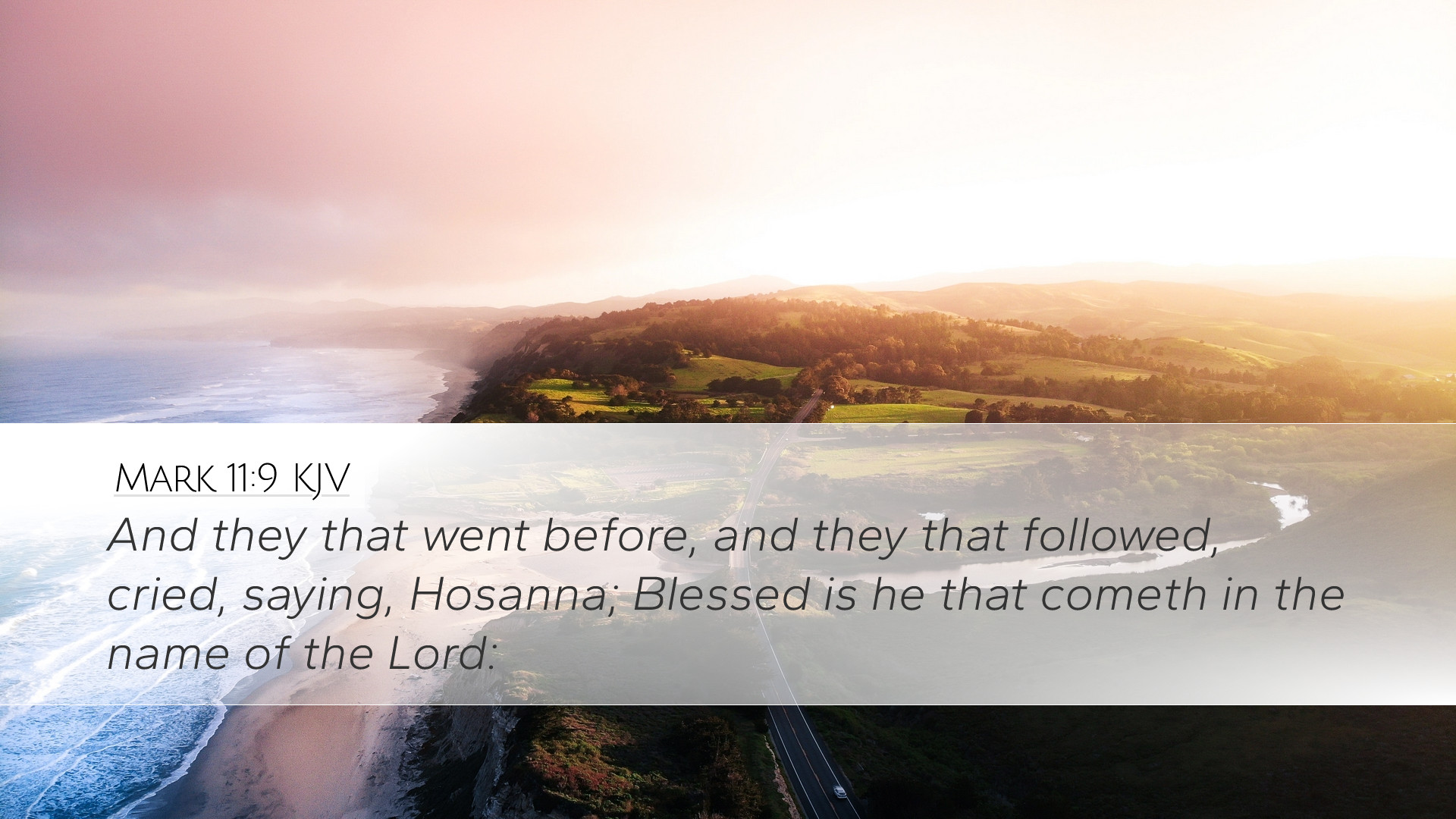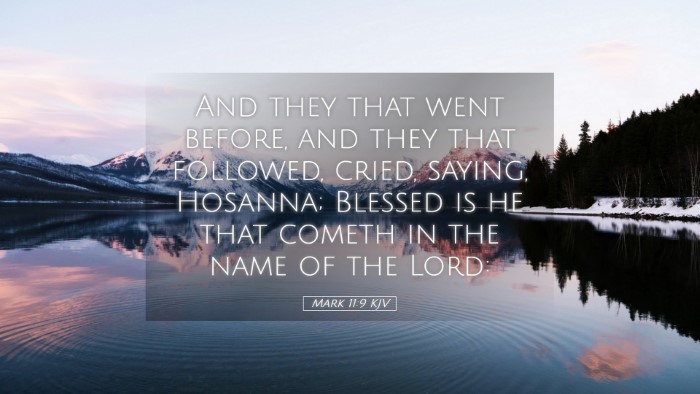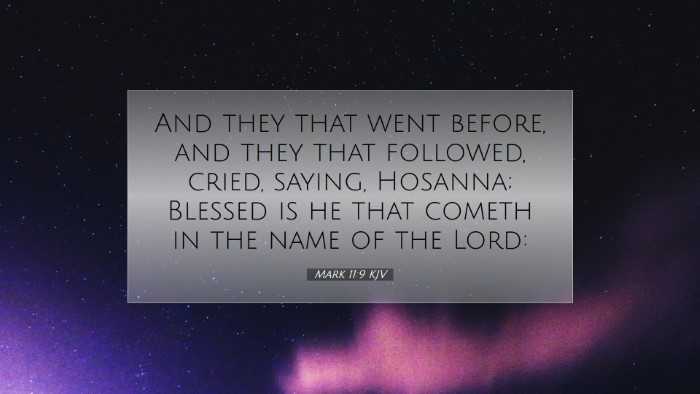Commentary on Mark 11:9
Mark 11:9 states: "And those who went before and those who followed were shouting, 'Hosanna! Blessed is he who comes in the name of the Lord!' This verse captures the moment of Jesus' triumphant entry into Jerusalem, which is rich in significance and theological meaning.
Context and Significance
In considering Mark 11:9, we must first understand its context. This event marks the beginning of the last week of Jesus’ life on earth, often referred to as Holy Week. The journey into Jerusalem fulfills prophecies foretelling the Messianic nature of Jesus and His mission.
Matthew Henry writes, “This entry into Jerusalem was the intended triumph of our Lord Jesus; he made his way in a humble manner yet in a triumphant fashion.” This duality illustrates the contrast between earthly expectations of power and spiritual humility.
Historical Background
Albert Barnes notes that “the phrase ‘blessed is he who comes in the name of the Lord’ was a common invocation in Jewish worship.” This highlights the crowd's recognition of Jesus as the Messiah, a significant acknowledgment amidst a Jewish culture steeped in expectations of a political redeemer.
Adam Clarke elaborates on the cultural significance of the acclamation, emphasizing that “the multitude hailed Jesus as the king they hoped for, shouting 'Hosanna'—a plea that means 'save now'.” This response reflects both hope and desperation, highlighting the crowd’s yearning for salvation from Roman oppression.
Theological Implications
The term "Hosanna" is deeply theological. It carries a dual meaning of praise and a prayer for help, embodying the people's acknowledgment of Jesus as the Savior while simultaneously expressing their longing for deliverance from their trials.
Matthew Henry further explains that “the use of the term reflects the scriptural roots in Psalm 118:26, presenting Jesus as the fulfillment of Old Testament prophecy.” The crowd's exclamation signifies a climactic moment in salvation history, where Jesus publicly takes His place as the Messiah.
The Contrast of the Crowd's Response
As we analyze the scene, it is crucial to note the responses within the crowd. While many praised Him, heralding His arrival with joyful acclamations, others in Jerusalem questioned His authority. This sets up a poignant contrast between the belief of the masses and the skepticism of the religious elite.
Albert Barnes comments on the fickleness of crowds, stating, “While they hailed Him as king one moment, just days later, they would demand His crucifixion.” This duality serves as a reminder that human affirmation can be as fleeting as it is fervent.
Lessons for Today
This passage offers rich lessons for contemporary believers, particularly in our understanding of worship and recognition of Christ. It raises critical questions about our genuine reverence for Jesus as the coming King.
- Worship: Are we engaged in true worship, or do we merely respond to the crowd's emotional fervor?
- Hope: What does our cry of 'Hosanna' reflect in our lives? Are we genuinely seeking Christ as our Savior?
- Discipleship: How do we navigate the contrast of societal pressures and our commitment to follow Christ whole-heartedly?
Adam Clarke reminds us that “real discipleship calls for more than mere vocal acclamations; it demands practical obedience and daily allegiance to Jesus.”
Conclusion
Mark 11:9 serves not only as a historical account of Jesus' entrance into Jerusalem but also as a profound theological statement of His messianic identity and the nature of true worship. It invites pastors, students, theologians, and Bible scholars to reflect on their relationship with Christ and encourages them to embrace Him wholeheartedly as their Lord and Savior.


